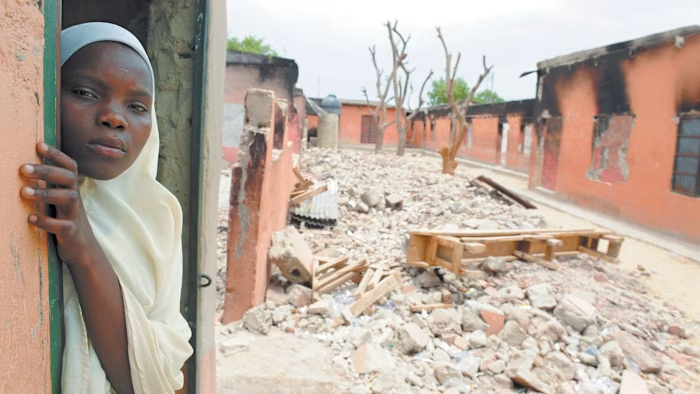News & Politics
Guinea-Bissau President Fires Prime Minister Ahead of Contentious Polls
Guinea-Bissau’s President Umaro Sissoco Embalo on Thursday, August 7, 2025, dismissed Prime Minister Rui Duarte de Barros, and appointed Braima Camara as his successor according to a presidential decree. Camara, a former coordinator of the Madem G15 party, was once a key opposition figure but has recently realigned with Embalo amid shifting political alliances. Barros, […]
By
Alex Omenye
6 months ago
Guinea-Bissau’s President Umaro Sissoco Embalo on Thursday, August 7, 2025, dismissed Prime Minister Rui Duarte de Barros, and appointed Braima Camara as his successor according to a presidential decree. Camara, a former coordinator of the Madem G15 party, was once a key opposition figure but has recently realigned with Embalo amid shifting political alliances. Barros, who had held the post since December 2023, was ousted less than four months before the general elections scheduled for November 30. The reshuffle is widely seen as a strategic move by Embalo to consolidate power ahead of a likely bid for a second term.
The West African nation, which has experienced multiple coups since independence from Portugal in 1973, is in the midst of a fierce dispute over the length of Embalo’s mandate. The constitution limits presidents to two five-year terms. Opposition groups insist Embalo’s first term expired on February 27, 2025, but the Supreme Court ruled it should run until September 4, 2025. Embalo has maintained that his mandate lasts until the elections that’s scheduled for November, a stance that has deepened political tensions.
Over recent months, the opposition has refused to recognize Embalo’s authority. In March, a mission by the Economic Community of West African States (ECOWAS) withdrew abruptly from the country after claiming it was threatened with expulsion by the president.
The abrupt change in leadership, so close to the polls, is likely to escalate Guinea-Bissau’s political crisis. The appointment of Camara, a figure linked to a key opposition party, may be intended to project inclusivity, but critics could interpret it as an attempt to fracture opposition ranks ahead of voting.
The ongoing dispute over Embaló’s mandate risks undermining confidence in the electoral process, potentially sparking protests or unrest. Some observers warn that the contentious election could open the door for Embaló to follow the path of leaders in the region who overstay their mandates and attempt to become life presidents. Given the country’s history of coups, the rising tension also heightens the risk of military intervention or instability in the fragile state.
Regionally, the political standoff could strain relations with ECOWAS, already under pressure from a wave of coups in West Africa. Any deterioration in Guinea-Bissau’s stability could disrupt governance and further weaken investor confidence in a country already grappling with poverty and weak institutions.

